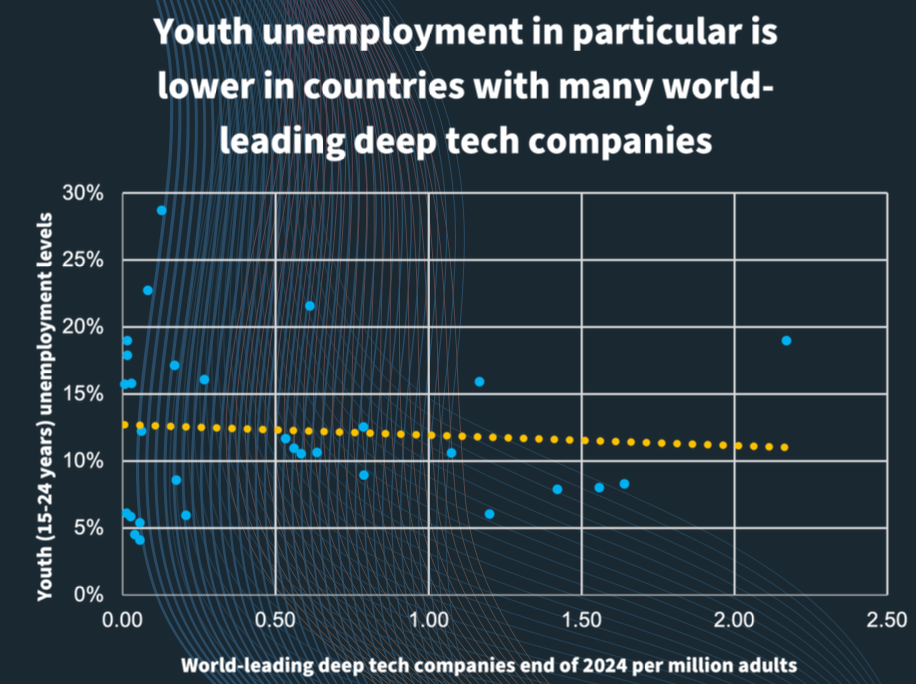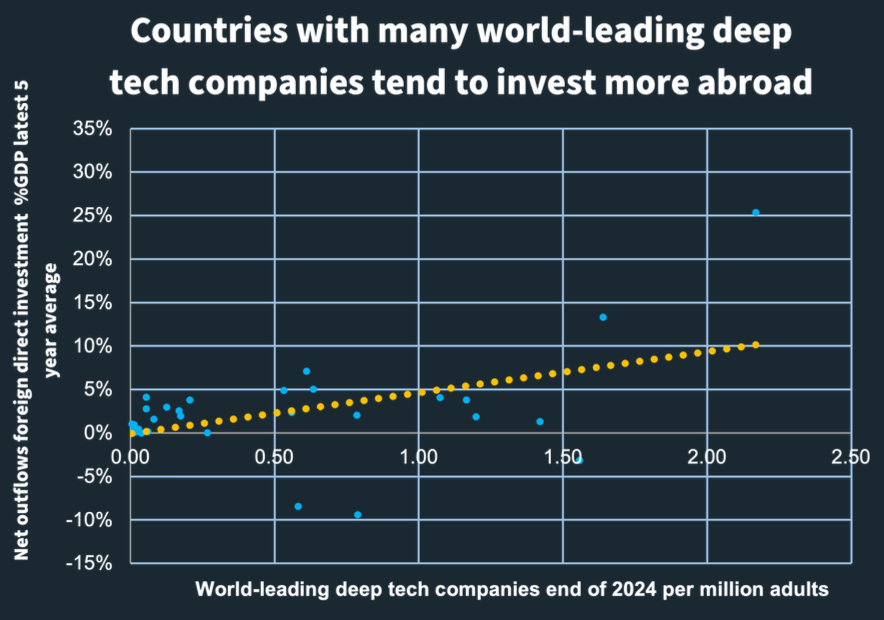
Deep tech development is dominated by North America, Europe and Asia, however the competition from Africa is also becoming noticeable. Africa´s growing economies already host some of the world´s leading 500 deep tech companies.
This is the finding of the Deep Tech Index. Conducted annually by the European Centre for Entrepreneurship and Policy Reform (ECEPR) with the support of Nordic Capital, this study maps and evaluates the global deep tech landscape.
West Africa has a long history of technological and economic prosperity. Mansa Musa, the 14th century ruler who is estimated to have been the richest individual in history, is famously from this part of the world.
Nigeria is currently the largest population center of Africa. While the sixth most populous country in the world currently, Nigeria is also experiencing a strong long-term population growth. The size allows economics of scale and in turn success in technologically advanced fields.
Government integrity, property rights and juridical effectiveness need improving in Nigeria, as does business freedom. The level of taxation and government expenditure is however low, which encourages more private business and leads to limited crowding out of private enterprises through government policy.
Lagos in southwestern Nigeria is the most populous city in Africa, and an important center for development of world leading deep tech. The same is true of the nation´s capital Abuja. Both regions have strengths in clean tech. Growing populations in Africa lead to much development of companies dealing with managing the environmental impact of large population concentrations.
Additionally, Lagos is a key global center for photonic & electronic deep tech development. This illustrates that African nations have ability to compete in even the most advanced areas of technology.
Nairobi, the largest city and capital of Kenya, is East Africa’s leading deep tech hub. Nigeria has a similar pattern of economic policy, with strengths when it comes to limited taxation and public expenditure, but limited government integrity and property rights. Besides clean tech, Nairobi also has strength in clean energy deep tech development. A strong link exists between energy supply and prosperity. It is therefore relevant to stay ahead of energy technology in order to boost long term prosperity growth.
Developing with technology is not only a matter of climbing the technological ladder, increasing national security capabilities and boosting prosperity – it is also related to jobs.
Youth unemployment tends to be lower in countries that have many world leading deep tech companies per million adults.
This is because these companies create jobs directly, indirectly via other businesses as undersupplies in the value chain, and also locally through the income effect. The income effect arises because high value chains that bring in international exports pay their employees well, and create indirect revenues in other businesses in the value chain also boosting salary of these businesses – which in turn increases local purchase power and local taxes funding public services. New deep tech jobs stimulate other jobs to grow, boosting prosperity and reducing unemployment risk of the new generation.

Egypt is the deep tech leader of North Africa. The capital city of Cairo is a leading center for economic development and technological progress. The large population creates a need for clean technology solutions.
The economic policy performance of Egypt is similar to Kenya and Nigeria, with strengths in limited government and weaknesses in fair government. Property rights are relatively strong, while having need to further improve. With further reform Egypt can become a strong candidate for economic and technological progress. The key change needed is to improve judicial effectiveness and fiscal health.
It is both possible and likely that reforms to boost market economic functions will continue in the leading technological nations of Africa. One broader change that needs to happen is for African countries to invest more abroad. The global pattern is that countries with many world-leading deep tech companies tend to have high share of total economic output invested abroad.

South Africa is an African nation with a long tradition of investing abroad. Cape Town is widely considered the tech capital of South Africa. South Africa has stronger property rights and government integrity, more effective judicial system. The burden of taxation and government spending crowding out private sector spending is however somewhat higher.
Besides economic policy, the development of deep tech is strongly linked to education progress. African nations need to join the global PISA-project to systematically track, benchmark and improve their educational results.
While African students are currently important human resources in mathematical and technological institutes abroad, African nation’s themselves need to develop their own top universities. The aim needs to be for African universities to climb the ranks of the 100 best mathematical and technological institutes of the world.
An inspiration can be taken from India, Asia's leading deep tech center, and the world´s leading talent exporter. Five out of the top 100 best mathematical and technological institutes in the world are currently according to the QS World University Ranking Indian Institute of Technology centers - namely in Bombay, Delhi, Madras, Kharagpur and Kanpur. If India from which many top students and researchers migrate abroad can achieve this, it is also in the coming years possible for Africa’s best centers of higher learning to replicate a similar success.
Africa already has world leading deep tech centers – from Cape Town in the South, to Nairobi in the East, Lagos in the West, and Cairo in the North. Growing population, competitive wages and a willingness to grow with improved business climate allows for African nations to continue this progress. In terms of policy lessons from the world, African nations need to continue strengthening property rights and judicial efficiency. It is important to retain limited taxation and government spending and upgrading the education system including with focus on the best technological universities.
African nations both can and need to grow with deep tech, it is ultimately about creating the jobs, security and prosperity of the future with sound policies.
Nima Sanandaji, Director, European Centre for Entrepreneurship and Policy Reform (ECEPR)
Photo: Tech worker, via Unsplash in Public Domain.












